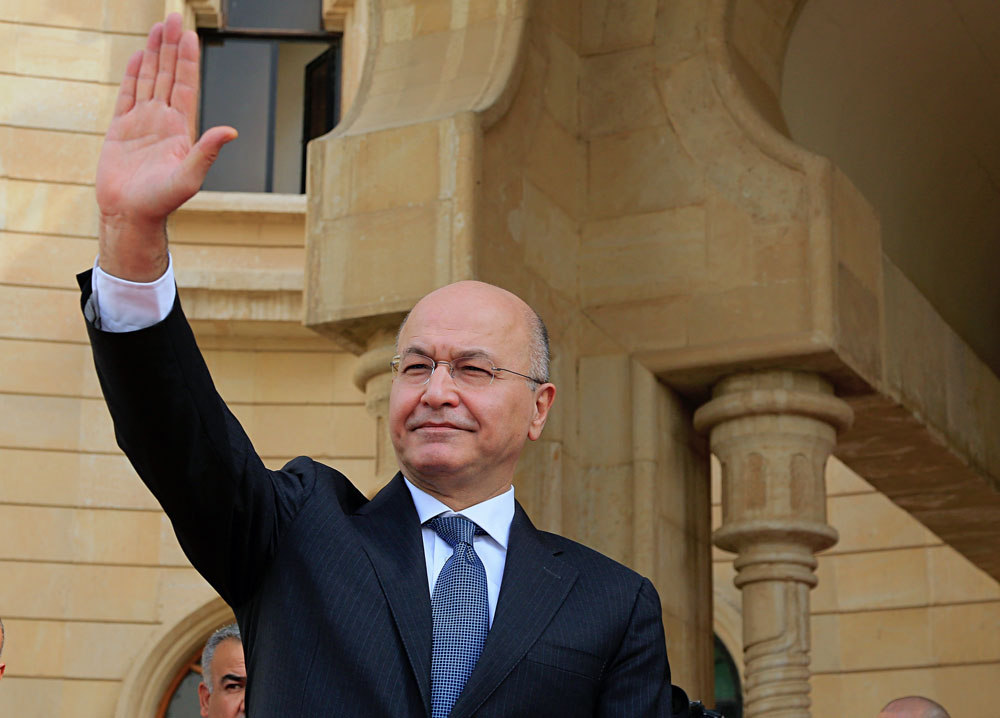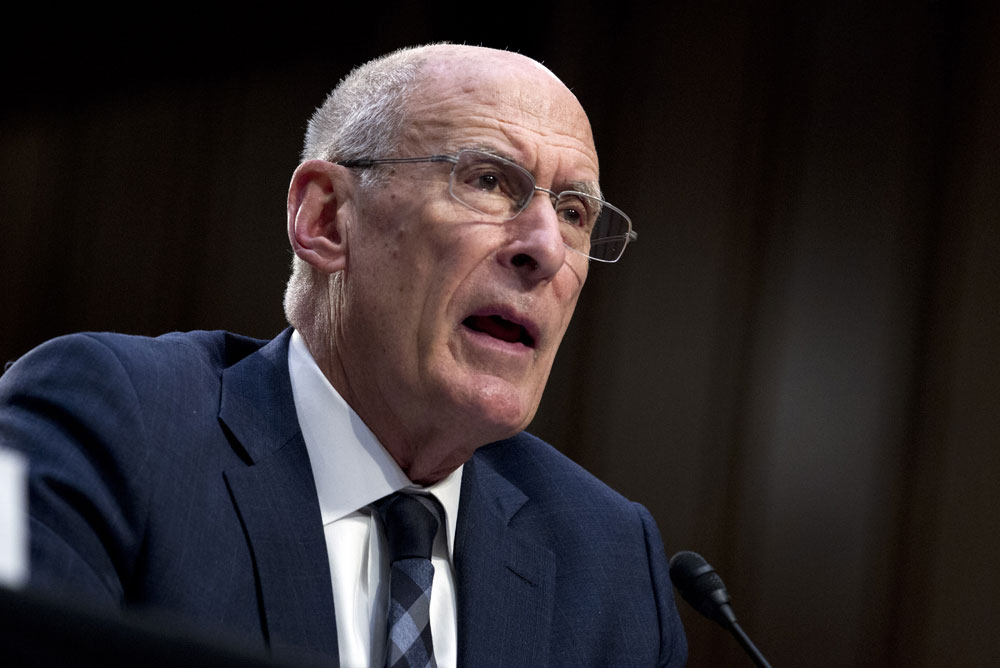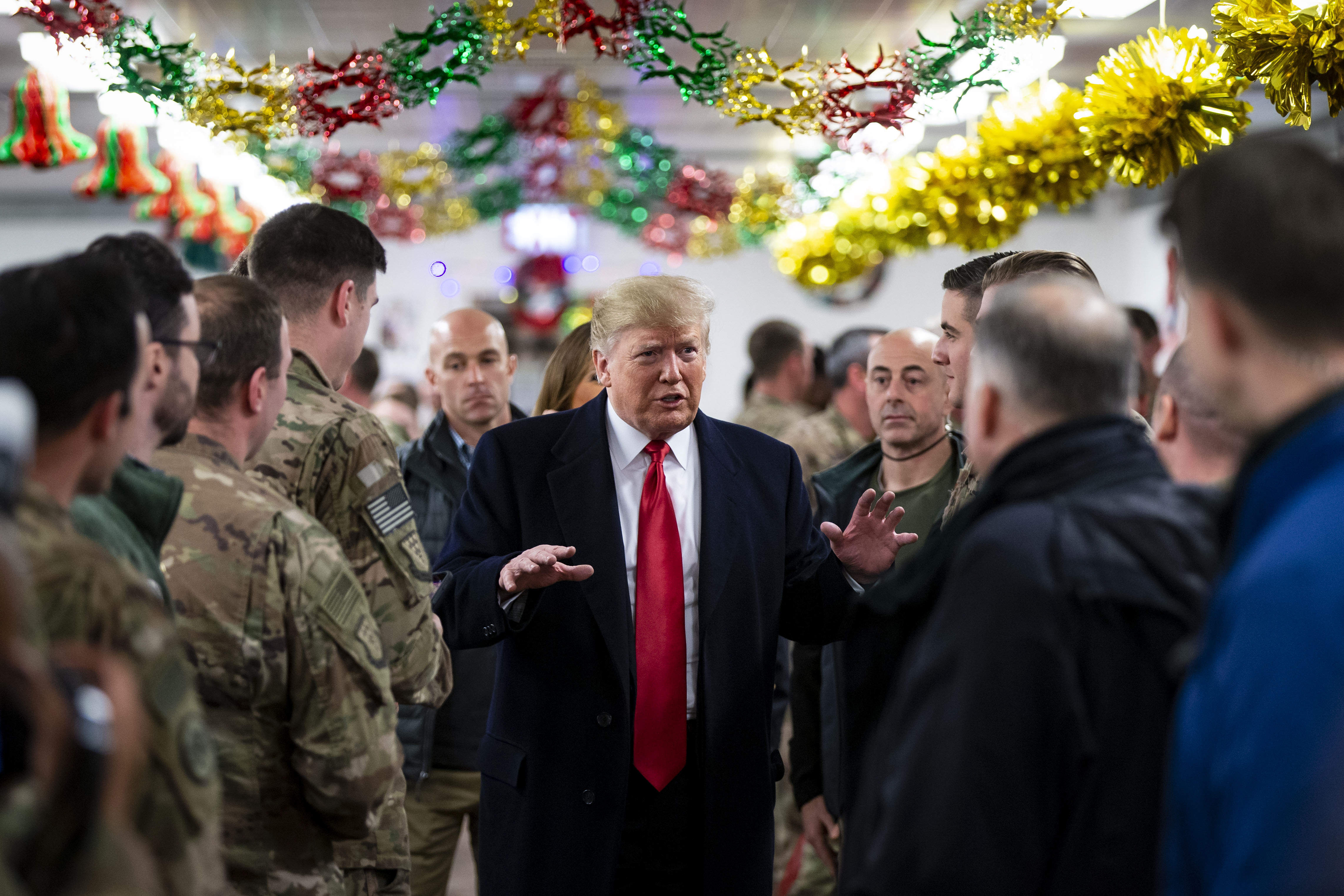Iraq's president hit back at Donald Trump Monday for saying US troops should stay in Iraq to keep an eye on Iran, saying the US leader did not ask for Iraq's permission to do so.
'We find these comments strange,' said Barham Salih, speaking at a forum in Baghdad.
Salih said US troops were in Iraq as part of an agreement between the two countries and with a specific mission of assisting in the fight against the Islamic State group and combatting 'terrorism.' He said the Iraqi constitution forbids the use of Iraq as a base to threaten the interests or security of neighboring countries.
'Don't overburden Iraq with your own issues,' he added.
Salih was responding to comments Trump made in an interview with CBS News' 'Face the Nation' in which he said the US has an 'incredible base' in Iraq that he intends to keep, 'because I want to be able to watch Iran.'
'We spent a fortune on building this incredible base,' Trump said. 'We might as well keep it. And one of the reasons I want to keep it is because I want to be looking a little bit at Iran because Iran is a real problem.'
He said the US base in Iraq is 'perfectly situated for looking at all over different parts of the troubled Middle East.'
He appeared to be referring to the Al-Asad air base in western Iraq, where he paid a brief visit to US forces in December. The base hosts American troops but belongs to the Iraqi army.
Trump's comments appear to have further inflamed tensions in Iraq over the continued presence of US troops after the defeat of the Islamic State group. Curbing foreign influence has become a hot-button issue in Iraq after parliament elections in May in which Shiite militias backed by Iran made significant gains. The militias fought alongside US-backed Iraqi troops against IS in recent years, gaining outsized influence and power along the way.
Now, after defeating IS militants in their last urban bastions, Iraqi politicians and militia leaders are increasingly speaking out against the continued presence of US forces on Iraqi soil.
Trump has said he has no plans to withdraw the 5,200 troops in Iraq, which he says could carry out US airstrikes inside Syria after American troops withdraw from that country.
American forces withdrew from Iraq in 2011, but returned in 2014 at the invitation of the government to help battle IS after it seized vast areas in the north and west of the country, including Iraq's second largest city, Mosul. A US-led coalition provided crucial air support as Iraqi forces regrouped and drove IS out in a costly three-year campaign.
Earlier this month, the leader of one of Iraq's most powerful Iranian-backed Shiite militias told The Associated Press in an interview that he expects a vote in the coming months by Iraq's parliament calling for the withdrawal of US troops. Qais al-Khazali, head of Asaib Ahl al-Haq, or League of the Righteous, also suggested US troops may eventually be driven out by force if they do not yield to the will of the Iraqi people.
Former Prime Minister Haider al-Abadi also weighed in on Monday, saying Iraqi sovereignty must be respected and its interests should not be compromised.
'Iraq should not be used as a spring board to attack its neighbors. We are not proxies in conflicts outside the interests of our nation,' he wrote in a Twitter post.












